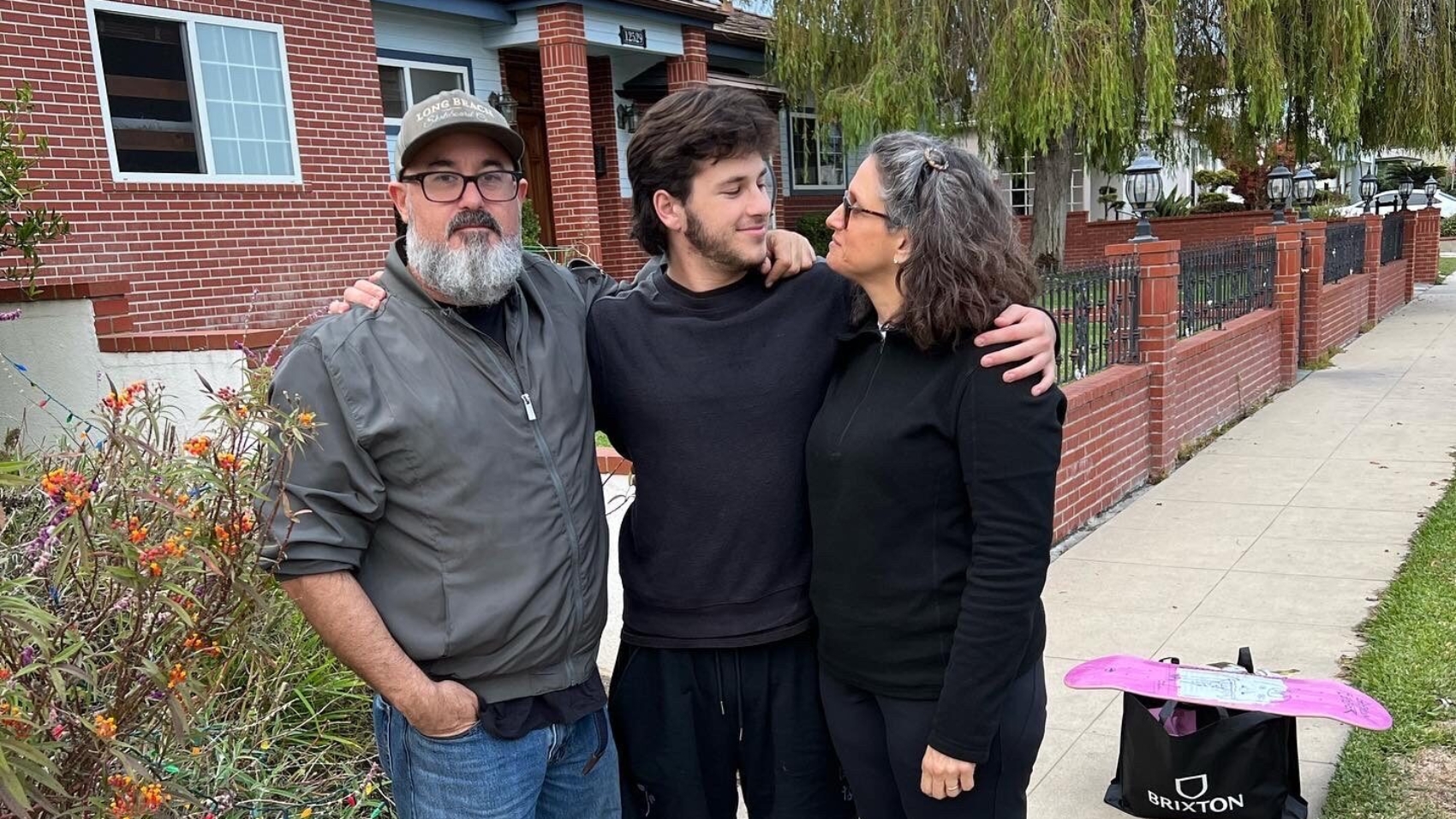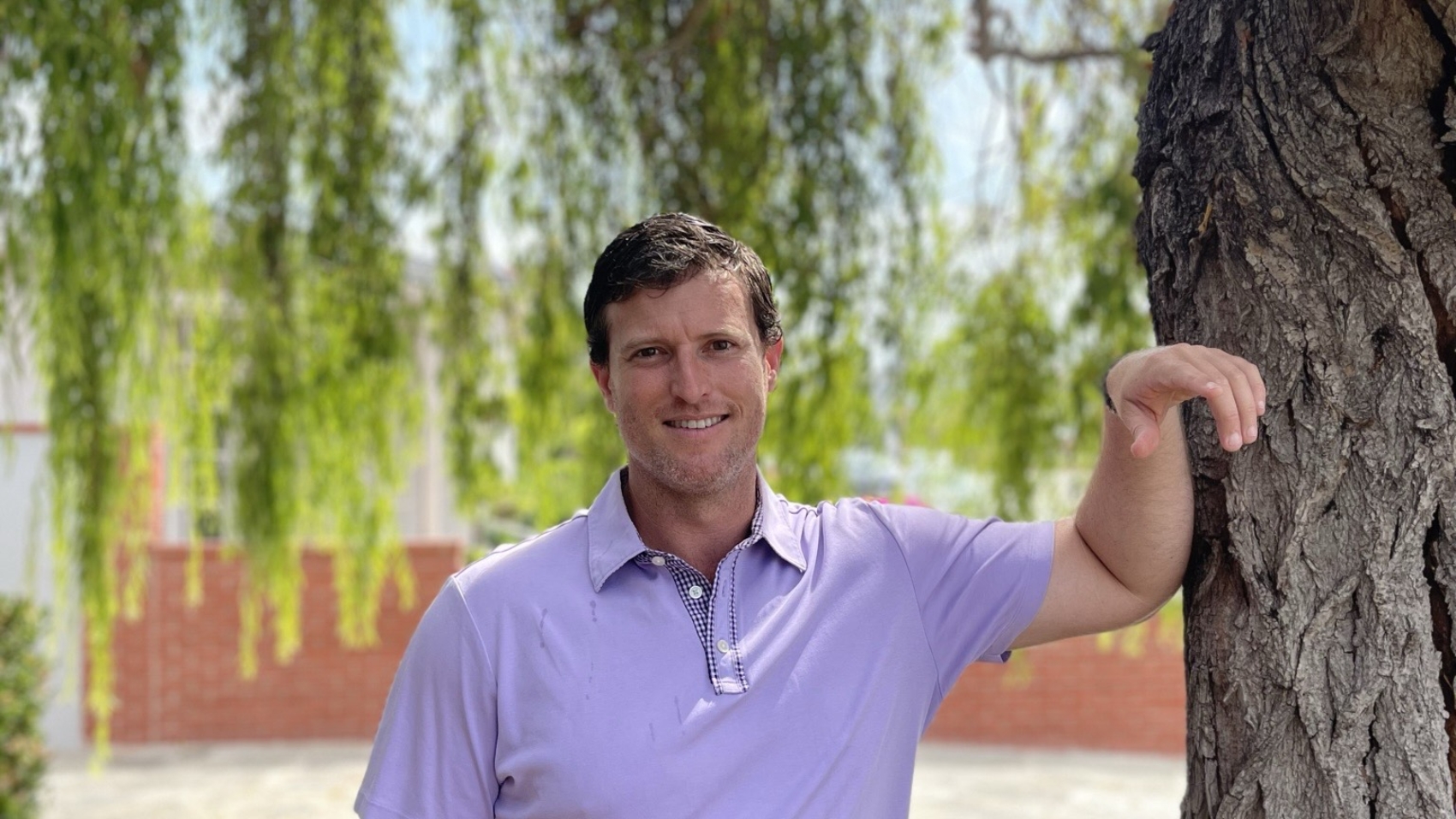Since coming to the Last House, my behavior towards myself and others have changed completely after spending so many years numbing, running, and always taking the easy way out. I was fortunate enough to have found the last house where I learned more about myself in these 18 months than I have my whole life coming in. I was shut off and reserved behaving like this was just another sober living I was going to get kicked out of. Overtime, I found another outlook on everything, life, sobriety, others, myself and my future. Being much more optimistic about my future I now have a reason and the resources to stay sober.
Success Story: Sam C.
When I put alcohol into my system, I act without any regard for other peoples feelings, and seem to lack empathy, but when I entered the last house I carried on with this habit of conduct from a sober state of mind. Clearly, my moral compass was nonexistent, and it was absolutely necessary for me to be placed under a structured system. Luckily, my parents found the Last house through an interventionist and gave me an ultimatum, either I go to this program or I can’t live with them anymore and have to figure it out on my own. By the grace of God, I admitted some sort of defeat and agreed to this program. I had no idea what I was getting into, I’m glad I didn’t because if I did, I would’ve politely said no. And so my chicanery and projection of my own misery began the second I crossed Last House threshold. I want to thank all the managers for their efforts to tame me in my first few months. without Will, miles, Dusty and Mike Wood’s severe yet loving disciplinary tactics, I don’t think I would be here to tell the tale. From a lying conniving child i slowly transformed into an open minded and willing man through the structure and brotherhood of Last House. Most importantly, I found myself as I am in gods image, through the alloy of the 12 step process and this program. Tonight I hope that those of you who are new and feeling lost at the Last House can recognize the miracle that stands before you and think maybe there is a chance for me. Please understand none of this was of my own doing and any good I’ve done while I’ve been at Last House is through God’s divine power, and through the utmost trust I have for this programs process. As Dusty says “the water is nice over here.” Last House taught me how to show up and stay consistent with my responsibilities and commitments. My cynical nature has been abated and my nihilism has morphed into a voracious desire to live and evolve. I’ve developed a cardinal liking to be there for others. No words can justly describe my gratitude for the brotherhood about me. I thank all of you, for being a movin part of this beautiful mechanism that turns Boys into Men.
Godspeed.
Success Story: Nathan A.
My behaviors have changed in ways I couldn’t imagine. I used to be a blameful person who couldn’t take any accountability. I lived a life with no trust in something bigger than myself and burned everything in my path. I didn’t believe in telling the truth; I only believed in saying things that would get me closer to my next drug or drink—lies of conduct, lies of making you think you can trust me.
The Last House has taught me a new way of living, based on helping others freely and being honest with myself. This has enabled me to be honest and impactful to those I meet on my journey. My outlook on life is no longer selfish and black and white. I now have a grasp of my purpose that I did not have when I was using drugs. Life was grim and dull; everything seemed so pointless. The only thing that made sense was how much dopamine I could overload myself with as fast as possible to numb the painful, empty hole in my stomach.
Now, I have tangible dreams that are no longer false and can become my reality. God and His children are beautiful. My life is filled with gratitude and moments of peace that I couldn’t find in my addiction. My attitude towards life and what God has to offer reflects all of that. Hate, gossip, self-pity, and destructive pride have been washed away thanks to the Last House and AA. I love myself now, which I couldn’t say before. The Last House gave me the ability to look in the mirror without being plagued with insecurity.
I used to hide my body with hoodies and hats. Now, I can walk outside with confidence, wear a T-shirt without hiding my hair under a hat, and just be me. I used to harbor hate towards my family and blame them for all my problems. Now, I love my mother and my grandparents and have extreme gratitude for having them in my life. Even my father is finally proud of me. All of these things would not be possible without AA and the Last House.
Coping Strategies for Dealing with Stress and Anxiety in Daily Life
Stress and anxiety have become the uninvited guests in our daily lives, leaving many of us feeling overwhelmed and anxious.
But what if you could master simple, practical techniques to turn your life around? Keep reading to learn coping strategies for dealing with stress and anxiety to regain control of your mental well-being!
What Are Stress and Anxiety?
First and foremost, it is essential to understand what stress and anxiety are.
Stress is explained as a reaction to a perceived threat or demand, whereas anxiety refers to worry or fear about coming occurrences.
However, it should be noted that while some stress may be pretty normal and even beneficial in some cases, excessive stress or overwhelming anxiety can have serious health consequences both mentally and physically.
However, the good news is that there are many simple techniques you can use to manage stress and anxiety.
Mindfulness: Your Secret Weapon Against Stress and Anxiety
Mindfulness, or being completely present in the current moment, is a powerful remedy for stress and anxiety. It needs nothing else apart from your attention and intention.
Imagine yourself in the middle of a tense work situation. Then, take five minutes to practice mindfulness by concentrating on breathing in and out.
By doing so, it interrupts the negative thought cycle, easing anxiety and stress. By practicing it regularly, mindfulness can be an excellent resource in your mental health arsenal.
Physical Activity: The Natural Mood Booster
Physical activity is another effective way to fight against stress and anxiety.
Even just a walk can help relax your mind and reduce stress levels since exercise releases endorphins that are natural mood-enhancers.
Try integrating physical activity into your day, such as jogging every morning or having an evening yoga session.
This does not mean you should become a fitness freak overnight; instead, it means building a consistent and manageable routine supporting your mental well-being.
Deep Breathing: A Portable Stress-Relief Tool
Deep breathing exercises are another easy-to-use but effective means of coping with stress and anxiety.
Such exercises communicate to the brain to calm down, thereby relaxing, leading to lowered heart rates, reduced blood pressures, and thus calmness in general.
Here’s one simple deep breathing exercise: sit comfortably, close your eyes, breathe slowly and deeply via your nose, and fill your belly with air.
Once more, hold it briefly before exhaling slowly through your mouth. Repeat several times while feeling the tensions leaving you.
Coping Strategies in Addiction Recovery
These coping strategies are not just helpful in managing everyday stress and anxiety; they also play a crucial role in substance abuse recovery.
The path to recovery from addiction is often filled with stress and anxiety, and having a range of positive coping strategies in their armory can help individuals navigate this challenging journey.
Many professional treatments for addiction, like cognitive behavioral therapy and exposure therapy, involve aspects of mindfulness, physical activity, and deep breathing exercises.
They approach the dual-diagnosis disorders of addiction and anxiety holistically so that individuals leave with the tools necessary to control their lives again.
The Last House: Harnessing Stress and Anxiety Coping Strategies for a Brighter Tomorrow
Coping strategies for dealing with stress and anxiety are more than theoretical concepts; they are practical, actionable tools you can integrate into your daily life.
Support from professionals at The Last House, as well as integrating some of these coping mechanisms into your daily regime, will enable you to move towards a better mental health state.
Remember, it is not about getting rid of stress and anxiety entirely but instead learning how to handle them effectively. So why should you wait? Start now! Begin the journey today; contact our sober living in Los Angeles for coping strategies for dealing with stress and anxiety.
Family Testimonial: Sam Cooper
“Since joining the Last House in December of 2021 the transformation of our son Sam has been remarkable. Little by little (step by step), the son we once knew has reappeared and he is now a responsible, mature, thoughtful and kind young man.
Sam has surpassed our hopes and dreams. We are so proud of the incredible work he has done for himself and the work he is now doing for others.
We are forever grateful to the Last House (and Thrive) for believing in Sam, never giving up on him and supporting his continued growth. We believe that the managers at the Last House are Sam’s guardian angels, and they hold a special place in our family’s hearts forever.
We are so grateful to have a new and better relationship with our son, and we have hope that relationship will continue to grow. We feel so lucky to have him back in our lives and will never forget the Last House and the great guys that helped to give our son a second chance.”
-Alexandra & Todd Cooper
Workplace Substance Abuse Programs and Employee Assistance
Did you know that workplace substance abuse doesn’t just impact individuals but also the entire work environment?
It can decrease productivity, cause more absences, and increase the risk of accidents and injuries. But there’s hope!
Many organizations are now taking action by implementing programs to address substance abuse and provide assistance to their employees.
Let’s explore how these initiatives can make a positive difference and help those in need.
What Are Workplace Substance Abuse Programs and Employee Assistance Programs?
Workplace substance abuse programs aim to prevent and address drug and alcohol abuse among employees.
These initiatives typically consist of the following components:
- Policies and procedures
- Education and training
- Screening and referral programs
- Treatment and counseling services
Employee assistance programs for substance abuse provide confidential and professional services to employees who are struggling with addiction.
These programs offer the following benefits:
- Assessments to understand the severity of the situation
- Short-term counseling to provide support and guidance
- Referrals to connect employees with additional resources
- Follow-up services to ensure ongoing assistance and progress tracking
These programs also extend their support to the family members of employees, recognizing the importance of a holistic approach to recovery.
Federal Assistance Programs for Substance Abuse
If you or someone you know is battling addiction, there are several federal assistance programs available to provide support.
Here are some essential programs to consider:
- Substance Abuse and Mental Health Services Administration (SAMHSA): Offers grants to organizations that provide substance use disorder prevention, treatment, and recovery services.
- Affordable Care Act (ACA): Mandates insurance coverage for substance abuse treatment.
- Medicaid: Provides coverage for substance abuse treatment for eligible individuals.
- Medicare: Offers coverage for substance abuse treatment services for older adults.
- State-funded programs: Many states have programs that offer financial aid and resources for addiction treatment.
- Veterans Affairs (VA): Provides specialized addiction treatment services for veterans.
Remember, these programs are designed to help individuals access the treatment they need and support their journey toward recovery.
Importance of Screening and Referral Programs
Screening and referral programs are crucial in identifying individuals who may be facing substance abuse challenges.
By detecting these issues early on, we can intervene sooner, significantly increasing the likelihood of successful recovery.
These programs involve using trusted tools to assess substance use and connecting those in need with the right treatment services.
Together, we can make a difference in helping individuals on their journey to healing.
Examples of Effective Programs
Companies have the opportunity to implement several effective programs to support employees facing substance abuse challenges.
Here are some examples:
Drug-Free Workplace Program
- Establish a clear, drug-free workplace policy.
- Provide comprehensive employee education.
- Offer supervisor training to address substance abuse issues.
- Conduct regular drug testing.
- Implement employee assistance programs to provide support and resources.
Employee Assistance Program (EAP)
- Confidential assessments to identify substance abuse concerns.
- Short-term counseling for employees in need.
- Referrals to specialized services if necessary.
- Follow-up services to ensure ongoing support and progress.
These programs aim to create a supportive and healthy work environment while addressing substance abuse concerns effectively.
The Benefits and Role of These Programs in Recovery
Workplace substance abuse programs and employee assistance programs offer many benefits. Here are some key advantages they provide:
- Improved workplace safety: These programs help create a safer work environment by addressing substance abuse issues.
- Increased productivity: By supporting employees in overcoming addiction, these programs can enhance productivity levels and overall performance.
- Reduced absenteeism: These programs can help reduce absenteeism related to substance abuse issues by providing resources and support.
- Decreased healthcare costs: By intervening early and providing assistance, these programs can help mitigate healthcare costs associated with substance abuse.
Most importantly, these programs play a crucial role in the recovery of individuals struggling with addiction.
They offer the necessary support and resources to help individuals overcome substance abuse and lead healthier, more productive lives.
The Impact of Childhood Trauma on Addiction and Mental Health
Drug addiction and mental health often go hand in hand. While we see the devastating impacts of both conditions on the sufferers and their loved ones, they don’t appear out of nowhere. Addiction and mental illness can be seen as weeds that have deep roots. When you dig deep, childhood trauma is often the root cause. When trauma is not addressed and allowed to fester, its impacts often are felt for a lifetime.
This article will uncover the connection between childhood trauma and mental health and how trauma-informed care helps people heal from their wounds and transform their lives. If you are recovering from dual diagnosis, the Last House sober living network is here to help. We offer evidence-based programs that give you the tools to combat childhood trauma and other issues that impact your well-being.
Call the Last House today and begin your recovery journey with a clean slate.
Understanding Childhood Trauma
In our discussion of childhood trauma and mental health, we need to first define what trauma is and how it affects people. Trauma is simply a deeply emotional response to an event that has lasting impacts on a person’s psychological development and growth. As children, we are exposed to any number of events that can be deeply traumatic. Common examples of these events include the following:
- Sudden death of a loved one or pet
- Being the victim of physical, sexual, or psychological abuse
- Living with and surviving major illnesses such as cancer
- Living in prolonged poverty and financial distress
- Being the victim of bullying
- Being exposed to household violence and neglect
In many cases, children who experience adverse childhood experiences (ACEs) can process and move on with the proper support. However, some children may have support systems or help in place to help them deal with the intense feelings associated with these events. As a result, childhood trauma can have devastating consequences that last well into adulthood. Some of these consequences include:
- Increased risk of diseases such as cancer and diabetes
- Increased risk of suicidal ideation and suicide
- Accumulated stress that compromises brain development and cognitive functioning
- The onset of mental illness such as depression and anxiety
Ultimately, the stresses associated with traumatic events as children hinder people from forming stable and healthy relationships, and many turn to substances to cope. When people who have unresolved trauma have families of their own, their children are vulnerable to trauma creating a vicious cycle that is difficult to untangle.
Dealing with Childhood Trauma and Addiction with Trauma-Informed Care
Those dealing with the two-headed monster of childhood trauma and addiction must enter a specialized program that features the services needed to fully address both issues. Fortunately, an increasing number of rehabs are adopting a game-changing program called trauma-informed care. This breakthrough program focuses on addressing the specific root issues of a client’s trauma. These programs help clients better manage their symptoms to minimize the risk of being re-traumatized down the road.
In addition to 12-step-based approaches, detox services, and life and coping skills training, trauma-informed care programs focus on effective therapies such as CBT, exposure therapy, and medication-assisted therapy (MAT). The greatest benefit of this approach to treatment is it helps clients realize they aren’t weak and beyond help. Clients can address the root causes of their trauma in an environment that is supportive, safe, and non-judgmental.
The Last House Will Give You The Tools You Need to Overcome Childhood Trauma and Addiction
The pain of childhood trauma can last a lifetime and can ruin families and friendships. Dealing with co-occurring disorders requires comprehensive and integrated care. If you are recovering from trauma and substance abuse, having extra tools and support goes a long way in healing your mind, body, and spirit. As Southern California’s premier sober living network, the Last House offers evidence-based treatment services and support customized to meet your specific needs.Our men’s sober living homes feature state-of-the-art amenities and clinical support to help motivate and empower you to live your best life. Most importantly, the Last House offers all clients strong peer and staff support to show all who seek help they aren’t alone. Call us today and take back control of your life.
Success Story: Colin
When I first showed up at the Last House I was a broken, haunted person that saw no possibility of
turning my life around. I sure as hell did not think the Last House or AA had any shot at helping me.
Dustin gave me some advice during my first few days that has influenced how I approached my
experience here. First, show up even when you don’t want to, even if you do it for someone else, you
will eventually learn to do it for yourself. And second, stick around long enough to see what it’s like on
the other side. So that’s what I did, far from perfectly, but I was present even when I was tired, fed up
and angry. And I did the work even when my first instinct was to dismiss it all because I was hung up on
the concept of God. My spiritual experience is definitely of the education variety, but the result is just as
striking as any white light experience I can think of. My time in the Last House has been the most
positive and radically transformative experience of my life.
I can think of no better way to show the change in me than comparing my life now to my life at the
moment of my last drink. That last drink was a shot of Jim Beam I begged my mother for so I wouldn’t
have a seizure on the way to the hospital. The look of fear and pain in my mother’s eyes I will remember
for the rest of my life. In the end I drank to hurt myself, but right then I realized I was hurting everyone I
care about in the process. Today, instead of hurting those I care about with the way I live my life, I try to
help people. I no longer avoid my family out of an overwhelming sense of shame. Instead of the small
and lonely world I once lived in, I have a community of people I genuinely care about and who genuinely
care about me. And the crushing self-hatred that once had me on the brink of taking my own life has
been replaced by real self-love.
Are There Mental Health Support Groups?
For those recovering from mental illness, having support is a game-changer. Mental health support groups provide confidence and motivation in helping people manage and even overcome their mental health issues. People in recovery groups for mental health can share their stories and listen to those who share similar struggles. Ultimately, support groups for mental health give people the confidence they need as they re-enter their daily lives and routines.
This article will highlight the mental health support groups available and the importance of these groups in helping people maintain good mental health. If you are recovering from mental illness, substance abuse, or both conditions, The Last House can help you! Our sober living network provides clients with tremendous peer support, clinical support, state-of-the-art amenities, and evidence-based programs that will transform your life.
Call The Last House today to learn more about sober living in Los Angeles!
Why Are Mental Health Support Groups Important?
Mental health support groups bring together people from all walks of life who are going through or have gone through similar experiences with mental illness. Within these support groups, people can share their personal feelings about experiencing mental illness in a safe and non-judgmental environment. People can also share coping strategies for dealing with mental illness and the therapies and treatment methods that have helped them better manage their mental health.
In many ways, support groups for mental health act as a bridge between treatment and family support. A support group encourages others when they are vulnerable and celebrates others’ milestones. These support groups can also provide compassion and understanding for those whose families may not understand their mental illness. Also, people in a support group hold people accountable if they are falling short in working on their recovery program.
Finding a support group often starts with a talk with your primary health provider or local mental health professional. These individuals will point you toward support groups for mental health in your area as well as helpful resources within the community that will help you better manage your overall mental health.
What Mental Health Support Groups Are Available to Those Needing Help?
For those who are seeking additional help in managing their mental illness and overall mental health, there are many options for support groups. A great place to start your search is the National Alliance on Mental Illness (NAMI). NAMI support groups include NAMI Connection which allows people with mental health conditions to come together to share their experiences, support each other, and heal from mental illness. NAMI also offers family support groups for family members, friends, and significant others to help them better understand a loved one’s mental illness. Depending on location, these groups are held weekly, biweekly, or monthly.
There are also mental health support groups that are 12-step based. For example, Emotions Anonymous is geared toward people experiencing anxiety, depression, anger, and low self-esteem. Another mental health-based support group is Neurotics Anonymous which provides support and information for those recovering from mental illness. For conditions that are related to some form of mental illness, 12-step-based groups such as Overeaters Anonymous, Love Addicts Anonymous, and Workaholics Anonymous are available.
Additionally, there are support groups for those experiencing substance abuse along with mental illness. Examples include Dual Recovery Anonymous, Double Trouble in Recovery, and Everyone’s Recovery Groups (ERG). There are also support groups that focus on a particular mental illness. Examples of these types of mental health support groups include the Depression and Bipolar Support Alliance, The Anxiety and Depression Association of America, and the Depressive-Manic Depressive Association of America. These groups offer in-person meetings, and some offer virtual meetings as well.
Transform Your Life With Help From The Last House
Finding and accepting additional help and support increases your chances of long-term recovery. The Last House is Southern California’s premier sober living network. We offer men’s and women’s sober living programs that provide evidence-based programs and support that give you the confidence and motivation needed to stay on the path to recovery. Our residences feature state-of-the-art amenities and foster a strong sense of community. Today is the day you take back control of your life; call The Last House Sober Living Network today and experience lasting happiness and freedom.
How Does Mindfulness Improve Mental Health?
A huge part of long-term sobriety is having optimal mental health. If you look good, feel good, and have the utmost confidence in yourself, you minimize the risk of relapse in recovery. While simple on paper, your focus may not be on mindfulness and mental health. The stresses of everyday life and the triggers present in your environment can leave you torn and frayed. If not addressed, it is only a matter of time before you turn back to substances to cope with your life.
In this article, you will learn how mindfulness improves mental health. You will learn the importance of mindfulness and ways you can practice mindfulness in your everyday life. If you are looking to preserve your hard-earned sobriety, call The Last House toll-free today. We offer top-tier aftercare and sober living programs that feature clinical and in-house support that is second to none. Call The Last House today and strengthen your recovery.
What is Mindfulness?
When you hear the word mindfulness, you may think of it as an esoteric New Age concept. In reality, mindfulness is a practice where you simply have full awareness of your thoughts in the present moment. When thoughts, feelings, and emotions enter your mind, you simply accept them for what they are and pass no judgment. When you are practicing mindfulness, there are right or wrong feelings. You are focusing on the present while avoiding reliving the past and worrying about the future.
How Does Mindfulness Improve Mental Health?
Now that you have a basic definition of mindfulness, how does mindfulness improve mental health? Early in your recovery, you experience wide and unpredictable swings in emotions. You may feel like you are hanging on my thread and feel like the wheels may come off at any moment. While these feelings are normal, not addressing them in a healthy and timely manner makes you vulnerable to relapse.
Utilizing mindfulness practices helps ground you in the present and makes you fully aware of what you are feeling in the present moment. When thoughts enter your mind, you simply acknowledge they are present and accept them for what they are. Once you acknowledge and accept your thoughts you let them go and return your focus to the present moment. When you focus on the here and now, you can see things clearly and can take positive steps forward.
Ways to Utilize Mindfulness To Improve Your Mental Health
Despite what you may think, incorporating mindfulness practices into your daily life is simple. The most common form of mindfulness practice is mindful meditation (also known as focused breathing). This form of meditation is very effective and only requires 10-15 minutes of your day. To perform mindful meditation, find a spot that is quiet and free from distraction. Focus on your breathing and the sensations you experience. When thoughts arise, acknowledge them, accept them, and return to your breath.
You can also incorporate mindfulness in recovery in other parts of your day-to-day life. For example, you can practice eating meditation where are take time to slow down and focus on each bite of food. Note the taste and texture as you slowly chew. You can also perform a walking meditation where you find a secluded spot where you can walk comfortably and note the sensations you feel with every step. Additionally, you can perform a listening meditation where you listen to sounds in your environment and imagine yourself getting inside those sounds. As always, avoid placing judgment on these sounds; accept them for what they are at that moment and move on.
Bolster Your Confidence In Recovery With Help From The Last House
You have worked hard to overcome your addiction and you must protect your investment at all costs. An excellent way to preserve your sobriety is to attend aftercare and sober living programs such as the one offered at The Last House. The Last House is Southern California’s premier sober living housing network. Our homes feature state-of-the-art amenities, evidence-based programming, as well as top-tier clinical support. We will help you develop and sharpen the tools you need to achieve lasting recovery. Call The Last House today and become confident in your sobriety.










